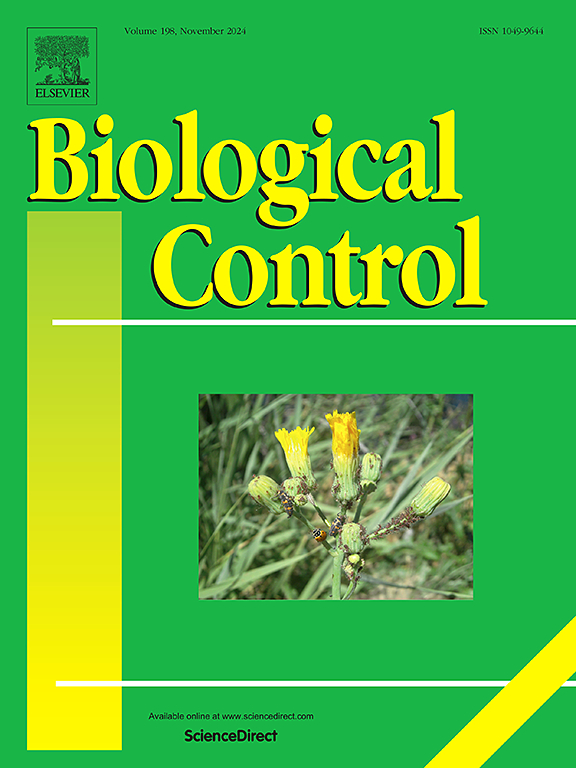An overview of biological control of plant disease in Afghanistan
IF 3.7
2区 农林科学
Q2 BIOTECHNOLOGY & APPLIED MICROBIOLOGY
引用次数: 0
Abstract
In Afghanistan, there exists an urgent necessity for efficacious, environmentally sustainable plant disease management strategies, as chemical pesticides and conventional methods have long been prevalent in the country. Biological control utilizing agents such as Trichoderma species and viral biopesticides is emerging as a promising alternative. Agriculture, a primary source of income in rural areas, would benefit substantially from the adoption of sustainable methods. Recent initiatives, including the National Horticulture and Livestock Project (NHLP), have established laboratories and production facilities to promote the utilization of biocontrol agents. These agents offer a more benign alternative to chemical pesticides, mitigating health risks. However, challenges persist in the large-scale production, storage, and distribution of biocontrol agents. To ensure the successful integration of biological control, collaboration among researchers, extension agencies, and agriculturalists is essential. Ongoing research, infrastructure enhancements, and education are crucial for overcoming these challenges and fostering the widespread adoption of biological control techniques. By addressing these barriers, Afghanistan can progress towards more sustainable agricultural practices, employing biological control as a responsible method for managing plant diseases.
求助全文
约1分钟内获得全文
求助全文
来源期刊

Biological Control
生物-昆虫学
CiteScore
7.40
自引率
7.10%
发文量
220
审稿时长
63 days
期刊介绍:
Biological control is an environmentally sound and effective means of reducing or mitigating pests and pest effects through the use of natural enemies. The aim of Biological Control is to promote this science and technology through publication of original research articles and reviews of research and theory. The journal devotes a section to reports on biotechnologies dealing with the elucidation and use of genes or gene products for the enhancement of biological control agents.
The journal encompasses biological control of viral, microbial, nematode, insect, mite, weed, and vertebrate pests in agriculture, aquatic, forest, natural resource, stored product, and urban environments. Biological control of arthropod pests of human and domestic animals is also included. Ecological, molecular, and biotechnological approaches to the understanding of biological control are welcome.
 求助内容:
求助内容: 应助结果提醒方式:
应助结果提醒方式:


